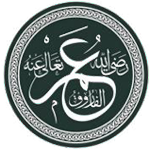
What is Islam?
The name "Islam" simply means "Self-surrender to
the Will
of God." It is the way of life that all Prophets through out history
have
taught, from those known in the Western world such as
Abraham, Moses and Jesus to those
sent to other parts of
the earth like Salih, Shu'ayb and Luqman, the African. The last and
final Guide was Muhammad, may he be blessed, who lived in sixth
century Arabia. A
"Muslim,"(i,e. a self surrendered one,)
is a follower of this faith. Nearly one
in every five
persons alive today is a Muslim.
What does Islam
teach?
Islam calls humanity to the service
of the One, Omnipotent Creator, Who is known as
"Allah, "
(The Deity) in the Arabic language. It further instructs people on how
they may live together in peace and harmony regardless of race,
class or beliefs. The
unity of purpose brought by all
previous religious guides is highlighted as well as
traditional morality, the equality of the sexes before God and the
virtues of patience and
humbleness.
Where
do these teachings come from?
Muslims
have two major sources from which they derive their religious teachings.
The
first is a book known as "the Quran," the direct
Revelation of God to His last
Prophet, the blessed
Muhammad. The second source is the collected sayings and
pronouncements of the Prophet which are complimentary to the Revelation.
These are known
as "the Hadith."
What
about Muhammad? Who was he?
Muhammad
(pbuh) was born in Arabia in the year 570. His father's name was
Abdullah and
his mother's was Aminah. Abdullah died before
his son was born and his mother died when he
was yet a
small child. He was first placed under the care of his grandfather and
then
later his uncle, who raised his nephew as his own.
As a boy, Muhammad (pbuh), disliked the prevailing custom of idol
worship practiced by
his people. How many a night he must
have paused to watch the stars and endless plains,
while
tending his uncle's flocks, and wondered at the real Creator of it all.
He shunned
the mischief of his fellow youth and soon
developed a reputation for honesty, generosity
and
compassion.
When he was a young man he took employment in
the merchant trade and soon distinguished
himself for his
excellent managerial skills, which resulted in an offer of marriage from
his wealthy, widowed employer, the noble lady Khadija. He was 25
and she was 40 when they
got married. Their marriage was
based upon love friendship and trust
Though time and
circumstances had changed as he grew older and wiser, Muhammad (pbuh)
still remained restless for the truth and he began to retreat to
the solitude which could
only be found outside the city of
Mecca. He often went to a mountain where he would
sometimes
spend days thinking and contemplating about God, reality and the Divine
way of
life. Then on one glorious day, the Almighty
revealed words of inspiration to him through
His angel,
Gabriel. "Read!" the angel commanded him, "Read in the name of
your Lord who created man from a clinging embryo..." This was
Muhammad (pbuh), for
all his truthfulness, patience, piety
and spirit, commissioned as the last and final
Prophet of
God to humanity. Though many trials, tests and triumphs lay ahead of
him, he
always called people to the service of the One God,
to shun myths and idols and to do unto
others only what is
good and right. He always lived a frugal life, and even after all of
Arabia was liberated from the darkness of ignorance, he, as the
ruler, still slept on a
reed mat and mended his own
clothes.
He taught a new standard to people and brought
civilization to an area of the world
where it had long ago
passed by. His lips moved with the Revelation of God and his life
put its precepts into practice. Though persecuted by the idol
worshipers for thirteen
years in Mecca and followed
faithfully by the believing citizens of Medina for ten
thereafter, he remained unto his death a devoted father, husband, leader
and Prophet. He
was given the title of "Mercy to the
worlds" by God Himself in the Quran and
anyone who has
studied the details and adventures of his life must necessarily declare
the
same. This man Muhammad (pbuh) is truly the hero of his
age as well as an inspiration to
ours.
Do
Muslims worship Muhammad like Christians do Christ?
No. Muhammad (pbuh) was only a man among men who received the
special favor of God. No
true Prophet of God taught that
any man must be worshipped, as if any human body could
contain the infinite. God instructs us in the Quran about him thus:
"Muhammad is no
more than Messenger. Many were the
Messengers who passed away before him..."(3:144.)
How
does Islam compare with Christianity and Judaism?
Islam, or, the Way of Self-Surrender to God, was taught by all
Prophets whether their
race was Jewish, Chinese, African,
Arab or Cheyenne.
Accordingly, Moses, who is regarded as
the pivotal figure in Judaism, and Jesus, who is
the
central personality of Christianity, both taught Islam to their peoples.
The teachings
of these great Messengers of God did not go
unchanged, however, over the centuries, and
one can find
that many practices, beliefs and customs practiced by the adherents of
those
faiths today differ from the original purity of their
founder's message.
Muhammad (pbuh), simply brought the
last installment of self-surrender (Islam) to the
world in
order to correct earlier corruption in humanity's knowledge of the
truth. So if
the roots of Judaism and Christianity are the
same as Islam, why does Islam seem so exotic
and strange?
The problem is two-fold. On the one hand, there are people in the
world who claim to be
Muslims, but who do not follow the
ethical or religious teachings of the faith.
Unfortunately,
the media has a universal fascination with negative news and a
reluctance
to highlight the positive. On the other hand,
much of what we read and learn about Islam
in the west is
written, interpreted and presented by those who either know very little
about Islam and the Muslim world. or are even hostile towards it.
An even more important area of misunderstanding lies in the basic
assumptions about
religion that the Western world and the
Islamic world make. Because of the West's negative
experience with religion, an alternate ideology known as
secular-humanism had to be
established to allow science,
rationalism and free thought to flourish. Islamic
civilization, in contrast, never impeded science nor the development of
human thought, so
a break between secular values and
religious ones never occurred. This is why Islam is
often
mix-labeled "Theocratic." Education and improvements in global
awareness,
however, are slowly wearing down barriers to
understanding, but it will require some
effort from all of
us to finally reach a point of tolerance and mutual good-will.
Where do Muslims Live?
Muslims live in every country and region on earth from Norway to
Malaysia and Morocco
to Mexico. Muslims form a large
percentage of the population in Russia, China, India, and
Eastern Europe.
Some Islamic lands are Arabia, Indonesia,
Pakistan, Turkey, Malaysia, Egypt and
Nigeria. Arab Muslims
form a small minority of the worldwide Muslim population. There are
nearly six million Muslims in North America alone. That's more
than the population of some
states such as Alaska, Nevada
and Rhode Island.
How does one become a Muslim?
There are no elaborate rituals or ceremonies to perform to enter
Islam (Self-Surrender
to God), for Islam is the faith of
reason, and therefore it takes an exercise of reason to
become a Muslim. Simply by declaring and believing in one's heart the
following phrase:
"There is no object of devotion save God
and Muhammad is the Messenger of God,"
one thereby is a
believer. As a consequence of making this statement sincerely,
everything
an individual did that was wrong or unethical in
his life up to that point, is forgiven by
God, no matter
what it was. From that moment onwards, the slate is cleared and you
begin
life again as a new person.
If what we
have briefly discussed interests you, please contact us at the address
or
telephone number below. We would be honored to share our
faith and our friendship with you
for all things must pass
away but the presence of our Lord shall abide forever.
Suggested
Reading:
1. The Holy Qur'an. Abdullah
Yusuf Ali (trans.) Amana Corp. Brentwood, 1983.
2.
Muhammad. Martin Lings Inner Traditions, Rochester, 1983
3.Towards Understanding Islam. Abul A'la Maududi, ICNA
Book Service, New York, 1990.
4. Jesus: A Prophet of
Islam. M. Ataur Rahim Presidency of Islamic Research, Ifta and
Da'wah, Riyadh, 1984.
5. The Bible, the Qur'an and
Science. Maurice Bucaille Seghers, Paris. 1987.
6. The
Road to Mecca Muhammad Asad Dar al Andalus, Gibraltar, 1980.



 الانتساب :
الانتساب :  العمر :
العمر :  المساهمات :
المساهمات :  نقاط التميز
نقاط التميز


